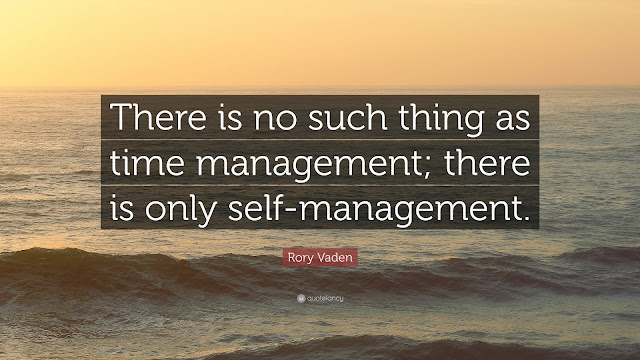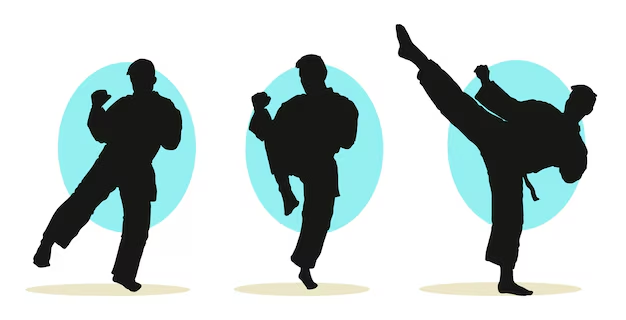I’ve been watching my middle daughter in the months between graduating university and finding the next thing – work, internship or a masters. It’s quite a tough thing, to have several months spare, with no clear next step, as many readers will know. The idea of long empty days may seem very appealing – especially after long years of full time and intense education, but they are also a jarring contrast to a packed schedule with its built-in classes, symposiums, team sports, assignments and exams. Adjusting to this is a challenge.
We parents can say ‘create a schedule’, ‘find things to fill the days’, ‘stick with it’ and she is doing exactly that. The notion, though, raises interesting questions about the ways we spend our time. It’s easy to appeal to time-management skills; but does this really make sense? I am not so sure; in fact I would agree with Dan Rockwell and Rory Vaden who have written there is no such thing as time management; there is only self-management. Time can’t be managed. It simply is. Nothing you do changes time. This simple re-phrasing strikes me as a simple, profound truth – but one that is far from obvious.

It seems to me that self-management is so much more profound that time-management because it foregrounds the essential point that our choices are not just about what we do with our time, but also about what we do with our lives. As we spend our hours, so we spend our days, and so we live our lives. And this notion applies, obviously, to us all. Approaching her 81st birthday, the great writer and poet Ursula le Guin, wrote a beautiful mediation on this notion of time:
The opposite of spare time is, I guess, occupied time… [but] I still don’t know what spare time is because all my time is occupied. It always has been and it is now; it’s occupied by living. None of this is spare time… I am going to be eighty-one next week. I have no time to spare.
This moved me more than I can easily say; because it spoke of a way of living a life that is, to her, clearly suffused with meaning and intensity. The idea of a life so occupied by living that there is no spare time seems to me to be such a worthy goal, and so much richer than notions of work-life balance or of ways to protect our time. There should be no such thing as spare time – as if we would just give it away because we have no use for it. It’s a real contrast to the idea of a life that seems to be largely occupied in the same way as territories are occupied; that is, by hostile forces. Only then would any unoccupied territory (spare time) be celebrated and cherished. Well, I’m never against a good celebration, but wouldn’t it be better to have no such time at all, but to be so clear about what we want and value that our lives would be overflowing; stuffed to bursting with great things? In what is often a short-term, bottom-lined, hyperlinked, disrupted, quantified working world I worry we are losing this notion.

For myself, I know I have sometimes fallen into the spare time paradigm, or it’s even poorer cousin, the balance paradigm – usually when unhappy with work. Writer Tim Burkeman similarly laments the way time has stopped being the water in which we swim, and has turned into something we feel you need to dominate or control – as a thing that we use rather than something we inhabit. Perhaps a better lens to view these matters would be to think about how we might be filling time with the right things (and for these purposes nothing might be the right thing!). It emphasises the importance of making wise choices. For my daughter entering the workplace, this is worth stressing, for sure. But I think it applies to all of us; le Guin asks the question for an elderly person, but she wisely notes it is one for all:
When all the time you have is spare, is free, what do you make of it? And what’s the difference, really, between that, and the time you used to have when you were fifty, or thirty, or fifteen?
References
- Le Guin, U. K., (2017) No time to spare; thinking about what matters. Boston: Houghton Mifflin Harcourt
- Neiman, S., (2017) Why Grow up? Penguin Random House
- Rockwell, D., (2018) The #1 Thing That Most Improved my ProductivityLeadership Freak Blog
- Schwartz, B (2016) The Paradox of Choice



5 Responses
Never thought of it that way….Though it's so true. Often we can count times we have managed ourselves… As times ticks on
Very well said, SELF management over powers TIME management.
An amazing take on Time and our relationship to it, as well as alternative ways of understanding the possibilities and reflections that can emerge when one shifts one’s filter from “managing” time to managing self! Great article!
Thanks Priya!
A useful reframing and very true. Managing oneself is always the challenge – managing time is a distraction. 4000 Hours is a great book which really illustrates the productivity trap, and helps you think about the purpose of your days, months and years.
Tim Urban also has amazing perspective on this which seems to resonate with my kids:
https://www.nytimes.com/2022/02/25/opinion/covid-pandemic-depressing-math.html
https://waitbutwhy.com/2015/12/the-tail-end.html
Such important topics to be mindful of.